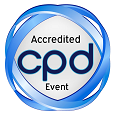
Rafael Gustavo de Lima
Federal University of Santa Catarina, Brazil
Title: A sustainability evaluation framework for science and technology institutes: An international comparative analysis
Biography
Biography: Rafael Gustavo de Lima
Abstract
This research part of the overall objective of identifying the formation of an international regime of sustainability promoted in particular by Institutes of Science and Technology (ICT's), demonstrating the ability construction of internationally shared frames of reference to the theme of sustainability. The existence and the sharing of networks, rules and guidelines to follow international practices reveals the formation of an international sustainability scheme promoted by Institutes of Science and Technology. The research develops and applies a model of sustainability assessment for ICT's that considers the concerns of the regime and, therefore, combines the metric of the GRI (Global Reporting Initiative), the A3P (Environmental Agenda in Public Administration) and ISCN - (International Sustainable Campus Network). In this sense, we have the following specific objectives: To determine the conceptual and historical background on sustainability, in order to understand their approach to international relations, relying in particular on the Theory of International Regimes and Theoretical Incursions from other theories of International Relations that can help; combine the above guidelines into a single evaluation model of sustainability (SIAS/ICT); investigate and analyze how sustainability is promoted internationally by Institutes of Science and Technology; and analyzing the results compared in order to evaluate trends and estimate performance rankings. The methodology, in its objectives, is considered descriptive and exploratory. With regard to the technical procedures, it adopts a multi-case study and literature review. In the case of problem approach, the research is qualitative and quantitative. The methodology follows three phases: Theoretical framework and conceptual approaches; proposition of evaluation model of sustainability (subsidized by SICOGEA - Accounting Environmental Management System); multi-case study and comparative analysis of the results. At the end, it is possible to demonstrate the formation of an international sustainability scheme promoted by Institutes of Science and Technology (ICT's), what their effective participation in the regime and, finally, it is possible to achieve an organized quali-quantitative system questions to evaluate sustainability in ICT's, and verify trends, rankings and relative importance of each dimension (economic, social and environmental) for the same modeling. In numbers, the international Institutes of Science and Technology surveyed reflect the attendance of 84.51% of the items arranged in the SIAS/ICT to MIT - Massachusetts Institute of Technology, located in the United States; 92.12% for the ETH-Zurich - Swiss Federal Institute of Technology Zurich, located in Switzerland; and 58.04% for Brazil, composed of 58 national contributions of Institutes of Science and Technology in Southern Brazil (IFSC, IFRS, IFPR).

